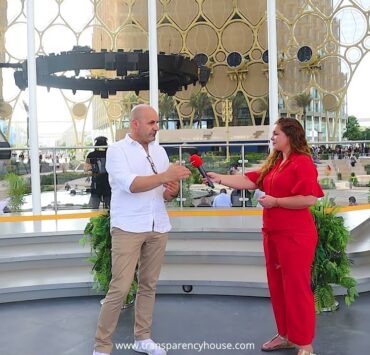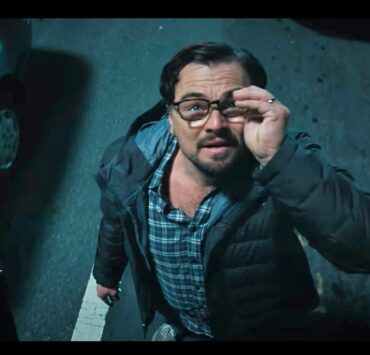CAUGHT IN THE COLD WAR – A PORTUGUESE STORY

Jazeela Sherif is an engineer turned CFO, a painter and…
Humans are never at peace with peace. Somehow, we are incapable of enjoying peace when peace actually prevails. Our manipulative thoughts might invent enemies to constantly fight with. Perhaps no other animal on earth fights without genuine territorial or survival reasons. Nation-states always believed and convinced their people that if they want peace they must also prepare for war.[1]
Alfred Nobel justified his invention of dynamite by saying: “Perhaps my factories will put an end to war sooner than your congresses: on the day that two army corps can mutually annihilate each other in a second, all civilised nations will surely recoil with horror and disband their troops.” A claim, which, in the current times, could be easily understood as nothing better than an unrealistic ‘post-truth’. So, we continue to fight, covertly and overtly, and on cyberspace, within and outside our countries. Meanwhile, many of us may still remain uninformed about countries like Costa Rica that had abolished its military as early as 1948. They are now a role model in climate action too. Therefore, amidst the general greed and lust for power, there are communities (don’t merely credit their leaders) that somehow understand what it really means to be living on the earth.
Glória, a very recently released Netflix series, is a true story based on a not widely known exposé of the history of Portugal in the 1960s, during the cold war period. The war of political ideologies was fought in multiple ways – through lies, fabricated stories, propaganda, treachery, espionage, brute force, and torture of hapless citizens. The atrocities done for decades by both sides unfold intriguingly in the ten-episode series, accompanied by splashes of drama and emotion that suit a super thriller.
It is not yet another espionage movie. Perhaps, as a first Netflix original series from Portugal, that too the costliest production ever from there, it opens a window to its past – a dark period marked by violence, oppression as colonial powers, and adventurous spy work by the two sides of the global power equation, vigorously trying to cancel out each other. That is what we jargonize as the balance of power that torments many ordinary lives with ordinary ambitions. The series is directed by Tiago Guedes and created by Pedro Lopez.
Today, we live through a different scenario of ideological wars being fought from many different platforms – increasingly digital, more public, and overt than before. Irrespective of the nature of regimes – democratic or authoritarian, with weapon-grade hacking technology breaking into even the most secured of institutions and individuals alike, the search for long-lasting peace is turning out to be a futile human pursuit.
Technology giants capture enormous data from our day-to-day interactions and transactions, while we remain completely clueless about how these data are being used, often compromising on our privacies. Ethical considerations do not look so paramount in the world of data trading. It is even outside the purview of a transparent audit or censorship. As a result, even political propaganda can find its way into society easily, hit the right targets, and generate predictive scenarios for its propagators. How we would be governed is no longer our choice as is often envisaged in a democratic regime. Many decades after the world wars, the subsequent cold war phase, and the era of global liberalization of the 1990s that saw the drastic shifting of power centers, ideologies still seem to presume superiority over human welfare and meaningful life on earth.
Imagine a period that lacked such levels of sophistication in information transmission where spies had to physically engage even for minor data gathering during espionage assignments. Glória is replete with thrilling episodes of risky spy operations by its key character João Vidal (Miguel Nunes). He is recruited to RARET, a CIA-operated radio broadcast station set up by Radio Free Europe, in a small village called Glória do Ribatajo, close to Lisbon. This shortwave retransmission center broadcasts anti-communist, American propaganda to the East European Bloc. Portugal was, then, under an authoritarian and anti-communist regime of Estado Novo led by Oliveira Salazar. RARET was established in 1951. KGB did not spare any effort to sabotage the American interests propagated from RARET through frequent interception of their transmission.
João is the son of a Secretary of State, Henrique who works in close association with the head of PIDE (the International and State Defense Police). Soon we learn that João is working for the KGB, and has a parallel secret mission to accomplish inside RARET.

His recruitment to KGB could have been the result of his stint as a fighter in the Portuguese Army. The horror of brutal atrocities committed by the army on the people of Angola, one of its colonies in those days, seems to have politicized and transformed him. João follows the orders of Alexandre Petrovasky (Adriano Luz), another senior KGB agent, who assigns him the espionage tasks.
It is not clear whether João listens to Alexandre whole-souled or out of compulsion. We often see him challenging some of Alexandre’s actions. In one instance, he questions the cold-blooded murder of a RARET employee, a lady whom João acquaints for his first mission at RARET. He is also shown as a compassionate human being in his interactions with Carolina (Carolina Amaral), a poor girl from an ultra-conservative agrarian family, desperately wanting to free herself from the cobweb she is caught in. Her poor surroundings, her oppressive father, her young fiancé’s forced army assignment, other youth compelled to serve the army against the wish of old parents, and a bunch of ordinary men whom we later find secretly working for the communists – all represent the true picture of an intriguing scenario of a country torn between two ideologies at war. Obviously, for no good of the countries involved or their people, but only to the benefit of a handful of tyrannical state heads. While one side wants ultimate authority over the country, for which the American support and presence of CIA agents were essential, the other side wants more bloodshed, in retaliation, aimed at gaining a strategic advantage in the whole region.
The bureaucrats of Portugal have deep concern about losing their hold on the colonies, mainly due to the communist uprising within and outside. A passing mention about Goa, an Indian territory once owned and lost by Portugal in 1961 shows that Glória’s makers had an eye for the historical accuracy and relevance in making this massive political drama.
João conducts perilous operations inside and outside RARET leaving no traces of suspicion, partly enabled by the diplomatic privilege he enjoyed. He secretly tapes the conversations of RARET’s head, the scenes presenting many a heart-thumping moment to the viewers. João’s encounter at the police station to assist a communist worker, a commoner, to escape from the jail is incredibly thrilling and an engaging watch. Only towards the end of the story, we realise that João saves him out of compassion, but not on the order of his commander. The policemen, security guards, and other agents like Goncalo who do their duties and who take orders from their superiors have no clue of which side they are actually serving. More characters in the series turn out to be agents of either CIA or KGB, or their facilitators, who inevitably meet with unfortunate endings, after being used for various tasks in the long chain of events.
It is revealed soon that João is looking for Mia Orlov, a missing RARET employee. We may easily guess her to be another KGB agent or a person romantically involved with João in the past. The ensuing episodes travel through the mystery of her disappearance, finding of her corpse from the dam thereafter, and the hushed-up investigations of her murder reported as a drowning death. The plot gets more complex in the middle episodes as João gets on to his real mission of finding what happened to Mia.
Alexandre gives him more daunting tasks and makes explicit his murderous intentions. He advises João to stay away from emotional associations with anybody or anything. When he wanted to save a lady from suicide, something which required no great effort, Alexandre prevents him. The disdain for human suffering by the ideologies is central to any such conflicts. At certain points, we forget to ask ourselves – who started the conflict, for what purpose, and what is the expected outcome. The only certainty is the cyclic and relentless journey destroying the dreams and lives of normal people. Even the survivors cannot live in peace.
In real history, RARET was abandoned in 1996, and the robust equipment were removed as scrap. It serves as a museum now. In the movie, Alexandre asks João to destroy the entire station regardless of whether it will cause the loss of many innocent lives, which he opposes. He is successful in finding Mia’s murderer after many seemingly incredulous espionage endeavors for connecting the dots. João was already under the radar after his colleague Goncalo finds him in dubious circumstances towards the end. But it is Goncalo who gets trapped and incriminated through João’s father’s manipulative interventions.

His romance with Carolina runs parallel to his implausible journey of chasing the secrets. It swerves your attention, perhaps, done to stop you from guessing the end of the story.
She is just there to help him in many ways, even in critical junctures, with utmost sincerity and passion. Very late into the affair, she somehow comes to know who he really is. João destroys RARET’s transmission tower in an odd hour of the night and saves lives, though that is not what Alexandre wanted.
The film has a curious ending. Was João genuinely interested in the complex politics? Or, did anyone from the top bureaucrat to the people who got killed by bombs planted by themselves (while their masters pressed the button) knew the consequences of their actions? Find out yourselves. You will also get answers to the question – why peace is an oasis we are perennially chasing.
The unique placing of the theme in RARET, a sprawling 500-acre world of its own, in the forlorn village of Glória, with a massive mission to shape the future of the Eastern Bloc by a Western power, is the greatest attraction of this thriller. This lends it an air of mystery, dubiety, and dark reality that places it much above the myriad of cold war era espionage stories. This well-made series is interesting from a history perspective too, for having shed light on one of its dark pages.
(Notes: Co-authored with Sherif Aziz. All images are sourced from the official trailer of Glória, and are hereby acknowledged. Pictures help the readers to connect easily with the story hint and are used with the good intention of promoting the film. Objections, if any, from the owners of the productions, shall be communicated through the contact form, upon which the pictures used will be removed)
[1]. In this context, it will not be a bad idea to go back and watch Alain Resnais’ Mon oncle d’Amérique (1980; My Uncle from America. Winner of the special jury prize at the Cannes film festival), which tries to understand human behaviour from a different angle.
What's Your Reaction?
Jazeela Sherif is an engineer turned CFO, a painter and a trained singer. Besides engineering, she holds an M.B.A, PhD, and an MSc in Financial Engineering.



